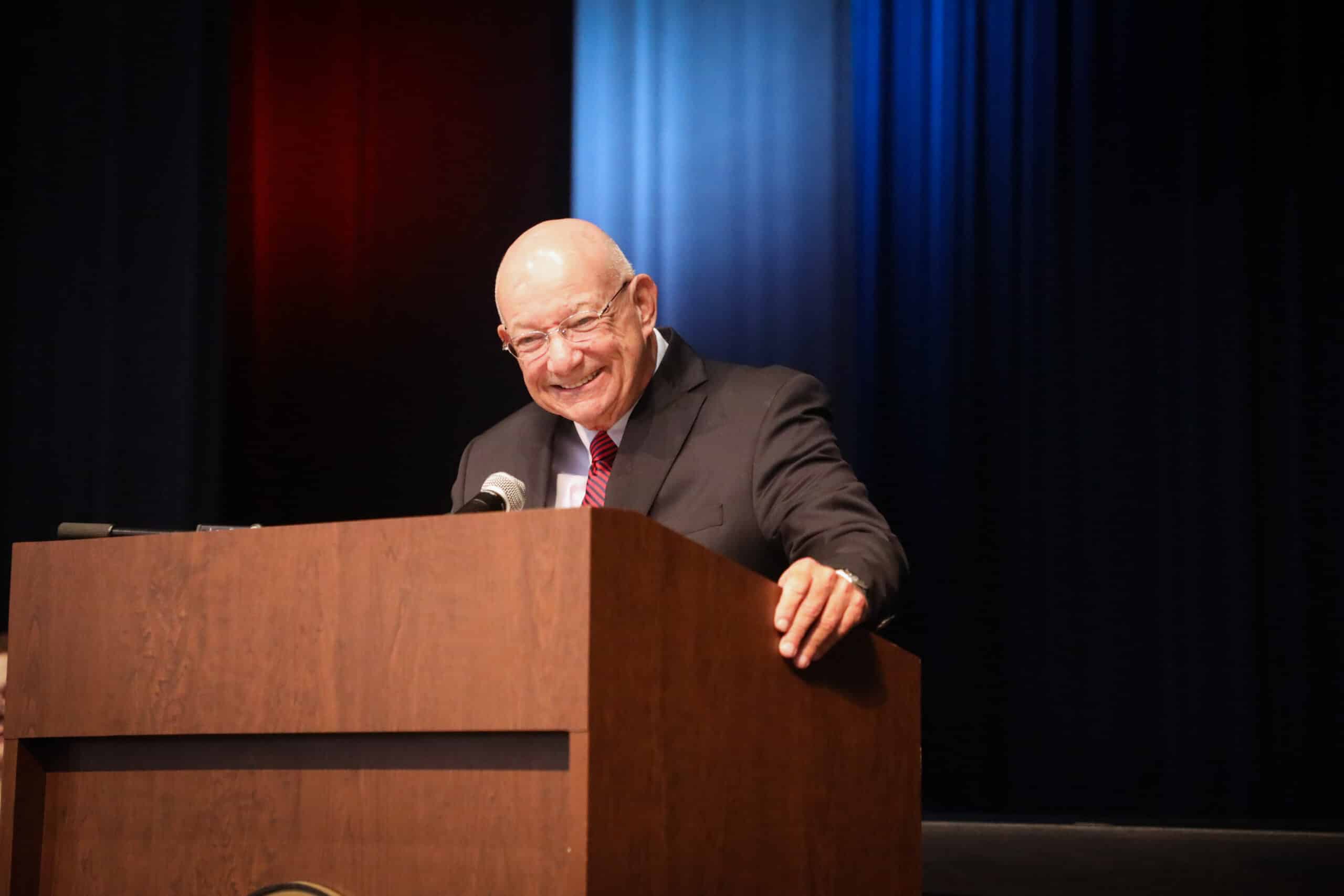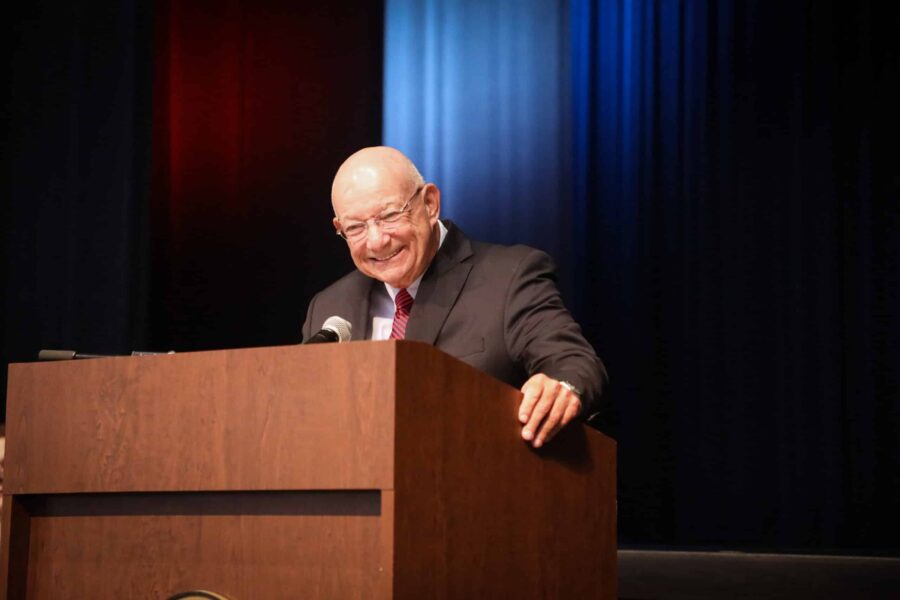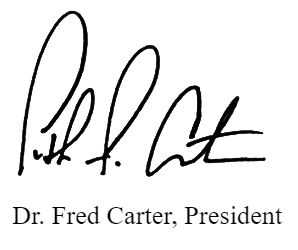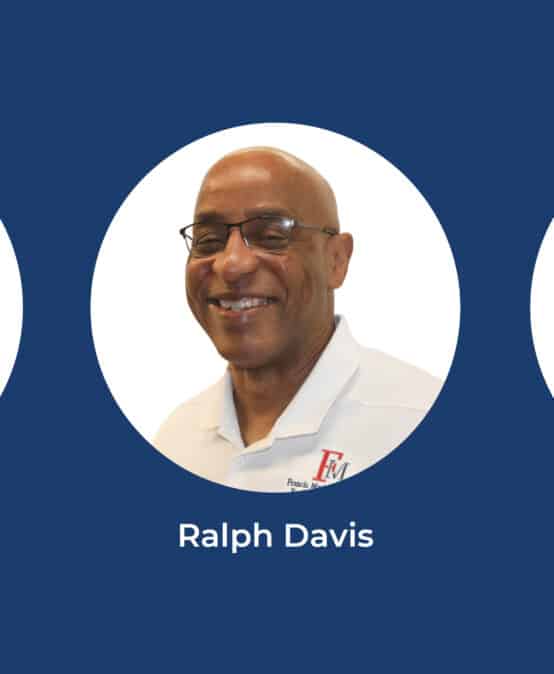December 6, 2023

Letter from the President
Letter from the President
By President Luther F. Carter | November 2023 | FMU Focus Magazine Fall 2023

My father, Luther Carter, came of age during the Great Depression.
He left the family farm in Louisa, Ky., walked across West Virginia and down into the hills of southwestern Virginia. It was a journey borne of desperation. His family had no money, the farm wasn’t producing, and there just wasn’t enough food to go around.
But even in Virginia, dad’s prospects were poor. He had little formal education and no definable skills. So he made his way to one of President Franklin Roosevelt’s newly established Civilian Conservation Corps camps, created as part of the New Deal. It was a public jobs program intended to mobilize millions of impoverished people and employ them on public projects of all kinds. In the mountains of Appalachia, one of the largest projects involved the construction of the Blue Ridge Parkway. My father was part of the crew that built that amazing road, a source of immense pride throughout his life.
The men and women of the CCC — “Roosevelt’s Tree Army” as they were nicknamed — lived in barracks-type camps. They were only paid $30 per month, but they were fed and sheltered. They also acquired skills that would serve them well in more prosperous times.
A great many of them developed a strong affection for President Roosevelt. Growing up in my home, it was always President Roosevelt or maybe Mr. Roosevelt, but never just Roosevelt. His was not simply a historic name but a revered one. Dad understood, until his dying day, that he led a fulfilling life because of a unique opportunity afforded him when he needed it most.
My father’s experience came to mind recently when the U.S. Supreme Court issued its landmark decision banning race-based preferential admissions at Harvard University and the University of North Carolina. Dad was neither an attorney nor a political scientist. He had a sixth-grade diploma, but he would have considered the decision imprudent and its reasoning abhorrent. He would argue that those with the most compelling needs should be entitled to more attention, assistance and consideration. He would certainly question why the court was retreating from its 70-year role as a champion of equity and a guardian of redistributive justice.
Preferential admissions and programs have leveraged positive change in our society over the decades, and we are all better off for them. The creation of the Civilian Conservation Corps seemed perfectly sensible to me back when dad first told me his story, and it makes even more sense to me today.
We are now told that there should be no more preferences for disadvantaged racial groups in college admissions. This country’s greatness has always resided with our capacity to be tolerant, compassionate and understanding. It is disconcerting to see the national mood shift to one of self-interest and complacency. Doubly so, when the judiciary is the change agent.
Where does this leave most colleges? Well, Francis Marion University — and regional schools similar to us — focus our recruiting efforts predominantly on in-state students. Over the past two decades, we’ve intensified our recruitment of first-generation college students. Since this involves assisting students who have the greatest financial need, we’ve never required preferential admissions to produce a diverse student body. The demographic profile of our student body naturally reflects that of the community surrounding our campus.
Of course, if the court ban eventually extends to prohibiting financial assistance for those with the greatest need, then our university will experience a serious conundrum. But then so will this country’s educational promise.
Moving ahead, we will do our best to adhere to these decisions, but we will follow our hearts as well.
Helping students who need it most has been a bedrock belief here since our founding 50 years ago. If there are students who need a little more help than others because of disadvantages or encumbrances in their lives, this is the school where they’ll get it — without explanations or apologies.
My dad and Mr. Roosevelt wouldn’t have had it any other way.
Neither would we.









